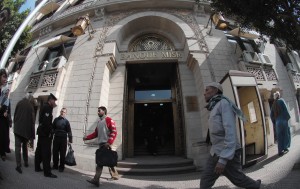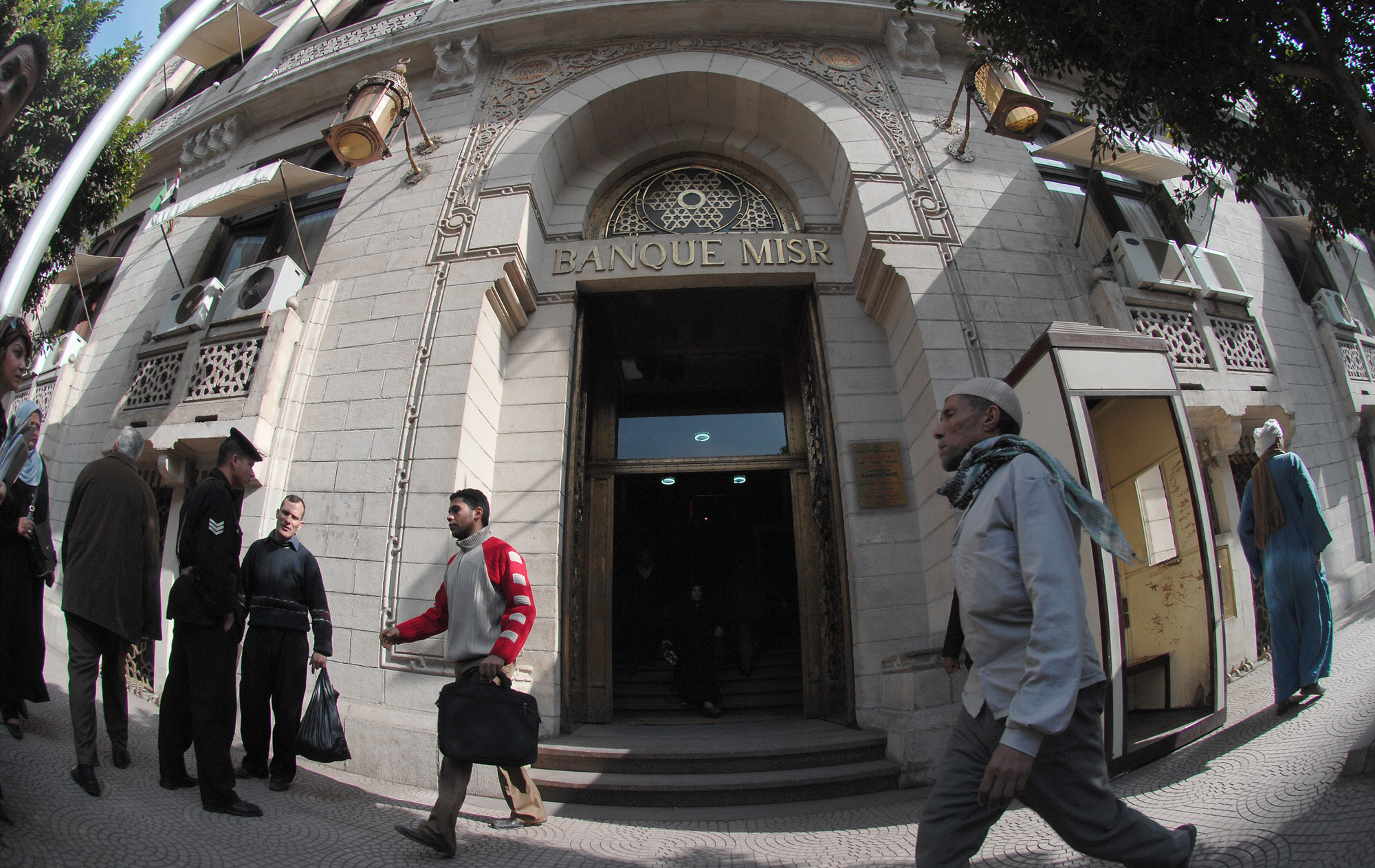
(Photo:DNE)
By: Ayat Al-batawi
There has been growing interest recently among conventional banks in Egypt who own licences to provide Sharia-compliant services, to restructure their branches which offer such services.
Such banks are looking to increase their investment and transaction portfolios in a bid to boost profits amid the current dearth in investment opportunities for traditional banking.
Leading the way among traditional banks offering Sharia-compliant services is Banque Misr, with a total of EGP 22bn in Sharia-compliant transactions.
It is followed by the National Bank of Egypt (NBE), whose total Sharia-compliant transactions totalled EGP 1.6bn.
The Principal Bank for Development and Agricultural Credit (PBDAC) was third with total Sharia-compliant transactions reaching EGP 1bn.
It was followed by the Suez Canal Bank (SCB) with EGP 700m, the Egyptian Gulf Bank (EGB) with EGP 650m, the Arab Investment Bank (AIB) with EGP 230m, and Société Arabe Internationale de Banque (SAIB) with EGP 200m.
In the midst of this competitive atmosphere in the Islamic banking sector, Islamic banks themselves are preparing to apply their new investment plans.
Financing for small and medium sized enterprises (SMEs) has also seen a spike in interest so far this year, with conventional banks aiming to strike agreements with the Social Fund for Development (SFD) in order to increase their presence within the SME segment.
“Now is the time to apply banks’ delayed plans, which have been studied intensively during the last year,” said Ashraf Tala’at, manager of the Islamic Banking Unit-Treasury at NBE. He added that during the coming period, banks will seek to increase portfolios related to Islamic transactions, in addition to expanding geographically, in order to reach all the market’s segments and achieve profits capable of matching those achieved by specialist Islamic banks operating within the sector.
Tala’at also confirmed that these investment portfolios will focus on SME financing in order for banks to increase their share in this lucrative market which has garnered great interest from all market segments and which allow the banks to utilise their available liquidity to achieve healthy profits and provide employment opportunities.
Tala’at believes 2013 will witness the signing of many Murabaha contracts (an Islamic financing structure, where an intermediary buys a property with free and clear title to it) with the SFD, stressing that the funding rates will increase by a large margin.
He also said that conventional banks which have Islamic branches will try to keep the independence of these branches, which will have their own administration policy as a kind dealing with clients transparently and to achieve the aims of Islamic finance.
Retail banking activity in Islamic banks will remain as is since the market has reached saturation-point. Corporate finance activity is subject to status and stability of the market, where funding currently so low that no clear indicators can be extracted.
Tala’at predicted that after the recovery of the economy, we will see banks compete each other to finance companies once again.
Bank of Egypt owns approximately 34 branches as possess an Islamic National Bank and Arab investment bank branches only, and there is only one branch of the Bank banking company and the Suez Canal, Egyptian Gulf.
Banque Misr has approximately 34 branches offering Islamic banking products and services, while NBE has two branches, as does the Arab Investment Bank (ABC). SAIB), SCB and EGB all have one branch.
Abd El-Rhman El-Kafrawy, director of Islamic banking at PBDAC said that most Islamic banks have begun to increase their funding for SMEs. “The banking sector hopes that economic stability will return, which will contribute in developing focused plans to finance SME projects, which must be funded by the banks under a plan set by the government,” he said.
He also added that retail banking in Islamic banks is yet to meet the market’s needs and yet achieved significant growth rates during 2012. “In order to attract SMEs to seek financing from Islamic banks, we must adopt clear and transparent funding policies in order to attract customers,” he added.
Head of Islamic banking at SAIB, Alaa Bondoq, said that his bank seeks to increase its Islamic transactions portfolio, which is expected to grow by 20% this year, and added that Islamic banking has achieved significant growth during the last year.
He also mentioned that there currently exists healthy demand for Sharia-compliant transactions, meanwhile most banks are waiting for CBE approval about their request for Ijarah, an exchange transaction applicable in Islamic regions, which involves trading a specified asset available for a payment, and where the ownership of the asset is not transferred.
The Arab Bank and Mashreq Bank have both submitted a request to the CBE for Islamic banking licences, meanwhile the Housing and Developing Bank (HDB) intends to offer Islamic products such as saving certificates and receptacles with variable returns to fulfil customer needs without CBE authorisation for an Islamic license.


